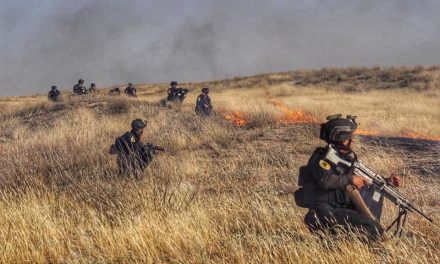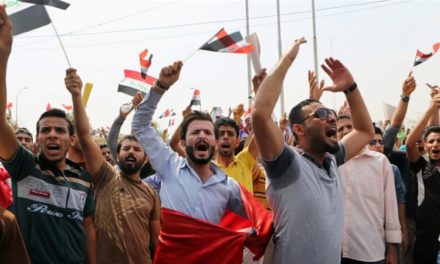Ever since the fall of the Iraqi Baath Party in 2003, Jordan has been a primary sanctuary for fleeing regime officials and Saddam loyalists. Jordanians are generally renowned for their admiration for the mass-murdering dictator, mainly because they see him as a bastion for the Palestinian cause after he launched 39 Scud missiles on Israel in 1991. Any Iraqi who has ever visited Jordan will testify to an encounter with a Jordanian taxi driver who has lauded praise on the tyrannical president.
While the Jordanian government has historically enjoyed good relations with Iraq, it has shown little ideological affinity to the Baath Party. In August 1995, bilateral ties momentarily deteriorated after Jordan hosted Saddam’s defected sons-in-law. But in 2003, many Baathists fled to Amman, and with them, hundreds of millions of dollars in assets accumulated from decades of corruption and nepotism. As a country with few natural resources that relies primarily on foreign aid and subsidized oil from Iraq, Jordan benefited greatly from the surge in Iraqi capital heading towards Amman.
Since 2003, Iraqi officials have expressed dismay at Jordan’s permissive attitude towards Baathist dissidents and their public displays of support for Saddam. Successive Iraqi governments have failed to persuade Jordan to take action against public gathering of pro-Saddam dissidents.
A prime example of this occurred on 16 July 2014, when Sunni opposition leaders gathered in Amman one month after Mosul fell to ISIS, to declare their support for the armed insurgency. One of their leading figures, Zaydan al-Jaberi, later appeared on a Syrian opposition TV channel and declared that ISIS was an integral part of the “revolution”.
16 July 2104: The opposition conference included men convicted of terrorism in absentia by Iraqi courts and on Interpol’s wanted list, including Sheikh Abd al-Nasir al-Janabi (pictured)
Since September, the new Iraqi government has sought to address this problem by emphasizing that security in Iraq has a direct bearing on Jordan’s stability. During Prime Minister Al-Abadi’s visit to Jordan in November 2014, the two sides pledged to enhance security cooperation that included a commitment from Jordanian authorities to crack down on groups and individuals that seek to undermine Iraq’s security.
However, Jordan has continued to allow Saddam loyalists to organize conferences that openly declare support for an armed insurgency and the overthrow of the Iraqi government.
Over the past two weeks, commemorations and rallies have been held across Jordan to mark the eighth anniversary of Saddam Hussein’s execution. His supporters declared him a martyr and a victim of the so-called American and Shia occupation of Baghdad.
On December 29, in the Jordan’s third largest city, Irbid, the professional guild association held a rally to commemorate Saddam’s “martyrdom”.
The following day in Amman, Iraqi Baathists and Jordanian sympathizers gathered in Amman to pledge their allegiance to the current leader of the Baath Party and former Iraqi vice president Izzat Ibrahim al-Douri.
There are no indications that Jordan has exerted any effort to clamp down on public displays of reverence to Saddam by Baathists who pose a direct threat to Iraq. The Iraqi government should no longer tolerate this state of affairs and should immediately respond by harnessing numerous pressure points at its disposal, namely oil subsidies and bilateral trade, to send a clear and decisive message to Jordan. While it is not uncommon to hear Arabs across the Middle East speak nostalgically about Saddam and his genocidal regime, the magnitude of support in Jordan should be considered a national security threat by the Iraqi government.









